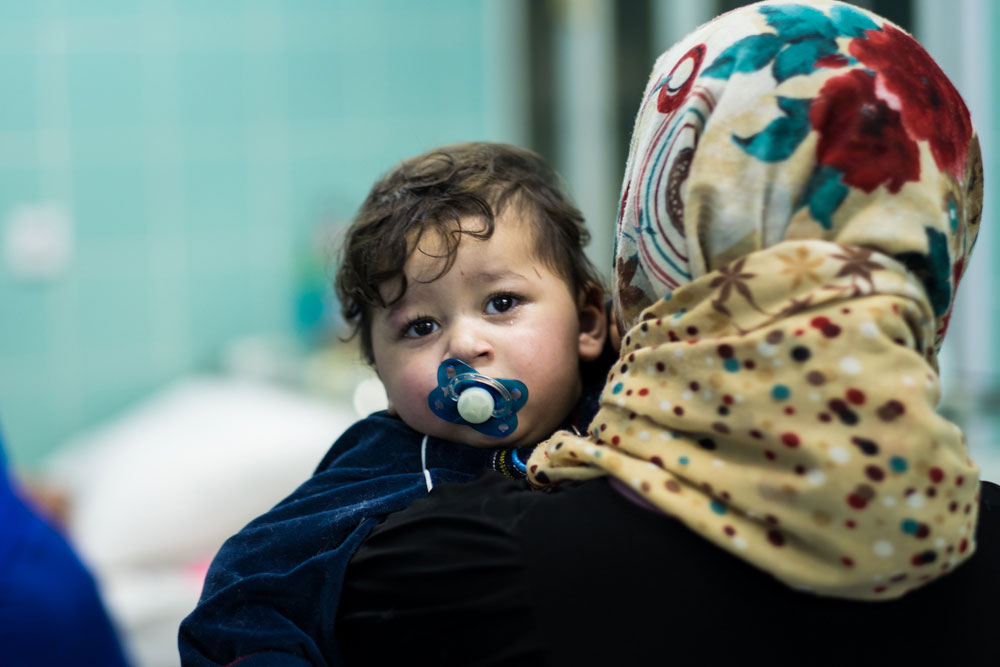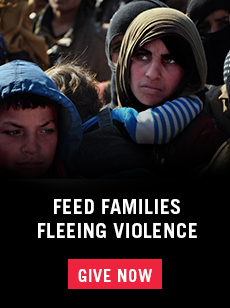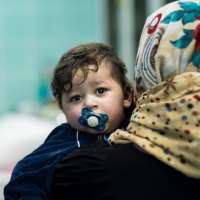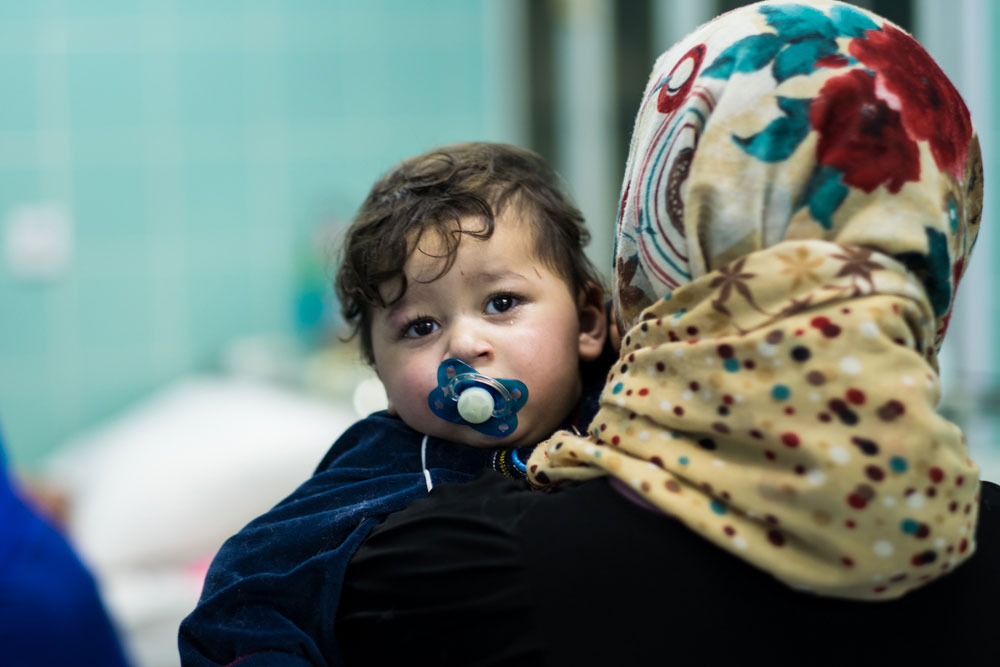
Tears collect on Sufyan’s lashes as he sucks madly his pacifier.
He’s tucked up into his mother’s arms and together they pace the hospital hallway, but Sufyan is not easily calmed. 14 months can be a difficult age. He’s too young to know just how sick he is, too young to know he needs a lifesaving heart surgery. And he’s too young to know that being born in Libya complicates his life.
But his parents know.
Many aspects of life were difficult for Sufyan’s parents, growing up in the time of Muammar Gaddafi’s Libya. The leader was as well known for his autocratic rule and for routine human rights violations. Life worsened four years ago, when the internationally-shunned leader was killed during the Arab Spring uprising.
Life used to be difficult, but it was structured. Suddenly, with the loss of Gaddafi’s iron rule, the structure fell apart. Two separate governments rose up to stake their claim over the country. Infrastructure crumbled. The economy, entirely oil dependent, crashed.
While Sufyan’s parents set out to build their lives together and make a family their country disintegrated around them.

Many living in their community were earlier immigrants from sub-Saharan Africa. They worked in the oil fields until those jobs disappeared. Their neighbours were left with no work and no options. Their home countries are plagued by war and persecution—returning home offered no better prospects. Many of those workers try to leave for Europe by sea, and as jihadist groups expand their influence across the region, more will try to escape. These migrants are simply out of options.
Sufyan’s family felt other tensions rising. Migrants entering Libya from the south and more recently Syria, bring with them a mix of religions, ideologies and racial tensions. These tensions are hard to keep in check and spill over when additional stresses are added.
During a recent attempted sea crossing, 11 Christians from Nigeria and Ghana were killed when they were thrown overboard by Muslims from Ivory Coast, Senegal, Mali, and Guinea-Bissau. A group of Ethiopian Christians were killed on a beach by ISIS (as Egyptians had been weeks earlier), facing Italy—Libya’s former colonizer. On that same day, another group was killed by ISIS in the desert, facing their African homeland.
But for Sufyan’s parents their concerns over political, economic, and religious tension are focussed through a tiny lens: the life of their son. Sufyan was born with a life-threatening heart defect and needs surgery to live. Libya is often described as a “failed state”. There are no resources to train doctors and nurses with the skills they need to save their son.
Correction…there weren’t resources to train doctors and nurses! That’s where our amazing medical team comes in. And that is where Sufyan’s parents see a ray of hope.


